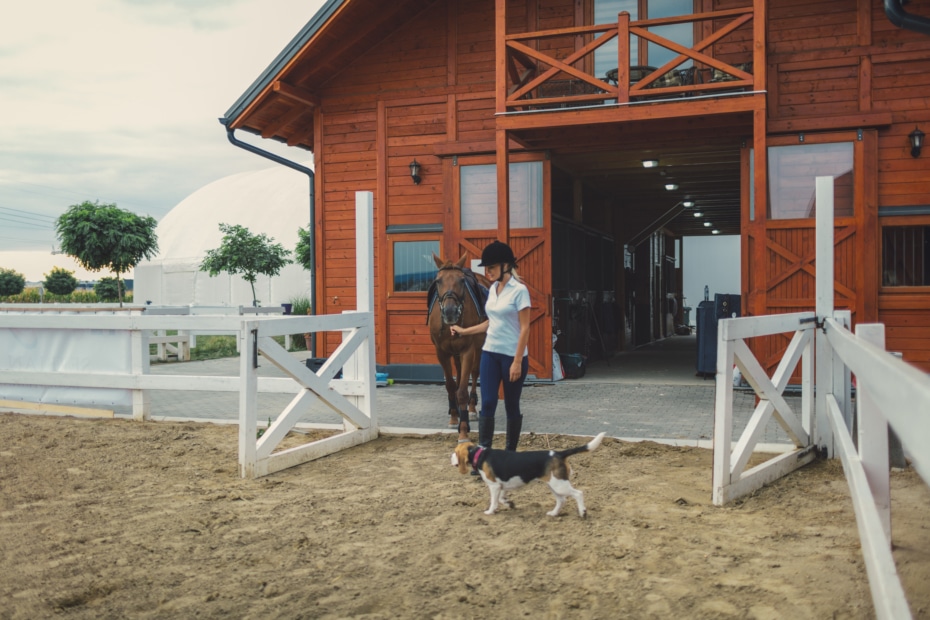Call Us At 519.672.5666
Insights & Articles
Stable Operators and Legal Duties

Horses are incredible creatures and provide many benefits to their human counterparts – horseback riding is associated with various health benefits such as cardiovascular health and lowering blood pressure. Further, these gentle giants can have a calming effect on those around them, making them particularly well-attuned to therapeutic treatments for people who have suffered from both physical and physiological trauma.
Stable owners and operators have responsibilities under both legislation and the common law and
1. Occupier’s Liability Act1
In Ontario, stable owners and operators are considered occupiers within the meaning of the Occupiers Liability Act, due to the control a stable operator has over the activities that take place on their premises. Thus, a stable operator will owe a duty of care in all circumstances where people are reasonably brought onto the property and carry on activities on the premises.
What this means is that if a stable operator expects that people will come onto their property and engage in activities such as horseback riding and training on the premises, then the operator is responsible to ensure the safety of those people.
This does not extend to risks that a person may willingly assume by coming onto the property, such as accidentally falling off a horse. Rather, a stable operator cannot deliberately or recklessly allow situations to take place, which may cause harm to others, such as allowing someone to come into close contact with a horse known to be aggressive.
2. Negligence
In addition, stable owners and operators may be liable in negligence at common law for injuries that occur on their premises. While owners and operators are often found to have a duty of care towards the injured party, attaching liability requires that the injury itself must have been reasonably foreseeable and there must have been unreasonable conduct. But what does this mean?
a. Accidental and unexpected injuries
In Belton v Spencer,2 the plaintiff was unexpectedly kicked in the face by the defendant stable operator’s horse. The Court held that the owner of an animal cannot be negligent if the animal acts in an unexpected way and injures someone. While there were prior incidents where the horse kicked, contextually speaking these incidents were considered normal in the circumstances. Thus, the operator did not have a duty to warn the injured party and was not liable.
b. Known history of aggressive behaviour
However, the situation changes when an owner knows that a horse has a history of aggressive behaviour. In Acheson v Dory,3 the plaintiff was riding a horse when she was bitten by another horse owned and ridden by the defendant. Even though the defendant warned the plaintiff to keep a distance, he did not inform the plaintiff how much of a distance was required, despite being aware his horse’s propensity to bite. He then became distracted and allowed his horse to come too close to the plaintiff, which caused his horse to bite. As such, he was held liable for the plaintiff’s damages.
c. Volenti non fit injuria – those willingly placing themselves in harm’s way
That being said, the law will not protect persons who willingly and knowingly put themselves at risk of injury, even with respect to aggressive horses. In Law v Wright,4 the stable operator placed warnings on the premises with respect to a horse who was known to have a propensity to bite. The plaintiff, despite being informed of these warnings, attempted to feed the horse and was subsequently bitten. While the Court found that it was foreseeable that a person may get too close to the horse’s stall, it was not foreseeable that the plaintiff would do what was specifically forbidden, knowing of the risk of being bitten. Thus, the stable operator was not held to be negligent in the circumstances.
Conclusion
Owning and caring for horses can provide many benefits to both the horses and the horse-riding community. However, stable owners and operators should be aware of the legal duties that come with owning and housing horses, particularly with respect to horses who may have a history of aggressive behaviour. In order to minimize your legal exposure, it is important to always keep visitors informed of the risks associated with being in close proximity to your resident horses. Comprehensive safety policies and waiver agreements, for example, can protect your legal interests and help keep everyone safe. Contact me for assistance with your safety policy and waiver agreement.
This article was written by Personal Injury and Equine Lawyer Louis DelSignore.
1 R.S.O. 1990, c. O.2
2 2021 ONSC 2029
3 1993 CanLII 7015 (AB QB)
4 2000 ABQB 49

